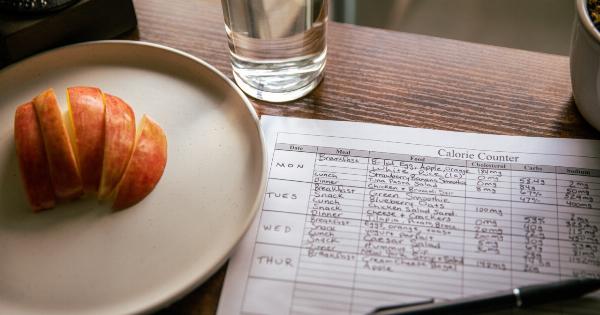High blood pressure, also known as hypertension, is a common health condition that affects millions of people worldwide. It is a major risk factor for heart disease, stroke, and other cardiovascular problems.
While there are many factors that contribute to high blood pressure, such as genetics and lifestyle choices, one nutrient that plays a crucial role in regulating blood pressure is potassium.
1. What is Potassium?
Potassium is an essential mineral that is required for the proper functioning of the body. It is an electrolyte, which means it helps conduct electrical impulses in the body.
Potassium is found in many foods, including fruits, vegetables, legumes, nuts, and seeds. It is also available as a dietary supplement.
2. How Does Potassium Regulate Blood Pressure?
Potassium helps regulate blood pressure through several mechanisms:.
2.1 Balancing Sodium levels:
Sodium is another electrolyte that plays a significant role in maintaining blood pressure. However, consuming too much sodium can lead to fluid retention and high blood pressure.
Potassium helps counteract the effects of sodium by promoting its excretion through urine. This helps maintain a healthy balance of sodium and potassium in the body, which in turn helps regulate blood pressure.
2.2 Relaxing Blood Vessels:
Potassium helps to relax the walls of blood vessels, promoting vasodilation. When blood vessels are relaxed, they widen, allowing blood to flow more easily. This reduces the strain on the heart and lowers blood pressure.
2.3 Reducing Fluid Retention:
Potassium can help reduce fluid retention in the body. Excess fluid in the body can put pressure on blood vessels, resulting in elevated blood pressure. Potassium aids in maintaining fluid balance, preventing excessive fluid buildup.
3. The Importance of Potassium-Rich Foods
Consuming a diet rich in potassium is essential for maintaining optimal blood pressure levels. The recommended daily intake of potassium for adults is around 2,500-3,000 milligrams. However, most people fall short of meeting this requirement.
Here are some potassium-rich foods that can help regulate blood pressure:.
3.1 Bananas:
One medium-sized banana contains approximately 400 milligrams of potassium. This makes it an excellent snack choice for maintaining healthy blood pressure levels.
3.2 Oranges:
Oranges are not only a great source of vitamin C but also provide around 240 milligrams of potassium per fruit. Enjoying an orange or a glass of fresh orange juice can boost your potassium intake.
3.3 Spinach:
Leafy greens like spinach are packed with various essential nutrients, including potassium. A cup of cooked spinach provides approximately 840 milligrams of potassium, making it an excellent addition to a blood pressure-friendly diet.
3.4 Avocado:
Avocados are not only delicious but also a good source of healthy fats and potassium. One medium-sized avocado contains around 975 milligrams of potassium, making it an excellent choice for maintaining blood pressure levels.
3.5 Sweet Potatoes:
Sweet potatoes are not only flavorful but also highly nutritious. A medium-sized baked sweet potato is loaded with approximately 950 milligrams of potassium.
4. Potassium Supplements
In some cases, it may be difficult to meet the daily potassium requirement through diet alone. In such instances, potassium supplements may be recommended under the guidance of a healthcare professional.
It is important to note that supplements should not be used as a substitute for a balanced diet. Excessive potassium intake through supplements can have adverse effects, especially for individuals with certain health conditions like kidney disease.
5. Conclusion
Potassium plays a vital role in regulating blood pressure levels. Consuming a diet rich in potassium-rich foods, such as bananas, oranges, spinach, avocados, and sweet potatoes, can help maintain optimal blood pressure levels.
However, it is essential to consult with a healthcare professional for personalized advice and to ensure proper potassium intake. By making conscious dietary choices, individuals can contribute to better blood pressure management and overall cardiovascular health.






























